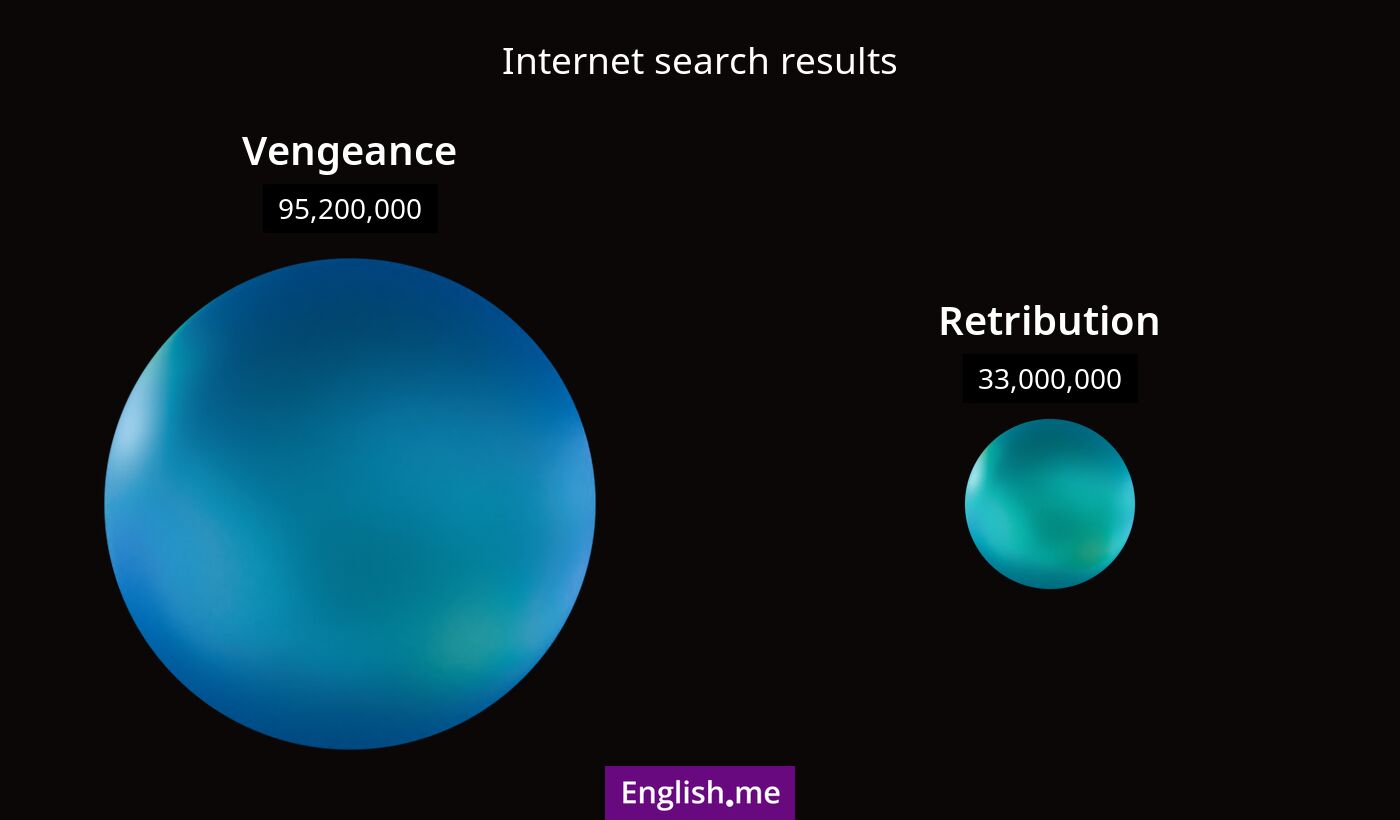The nuances of justice: "vengeance" vs. "retribution"
Reviewed and edited by  Lloyd Cooper 15/10/2024, 05:40
Lloyd Cooper 15/10/2024, 05:40
English.me team member

 What is similar?
What is similar?
Both "vengeance" and "retribution" refer to the act of taking action in response to a perceived wrong or harm. They both involve the concept of punishment or revenge as a response to an injustice.
 What is different?
What is different?
"Vengeance" often implies a personal or emotional motivation, suggesting a desire for revenge. "Retribution", however, implies a more impartial or justified punishment, often associated with justice and morality.
 Which one is more common?
Which one is more common?

 Examples of usage
Examples of usage
Vengeance- He sought vengeance for the wrongs done to his family.
- Vengeance consumed her thoughts as she plotted her next move.
- The tale was one of betrayal and vengeance.
- The criminal faced retribution from the legal system.
- He believed in divine retribution for those who committed grave sins.
- Retribution was swift for the corrupt officials.

 English
English español
español française
française italiano
italiano deutsche
deutsche 日本語
日本語 polski
polski česky
česky svenska
svenska Türkçe
Türkçe Nederlands
Nederlands